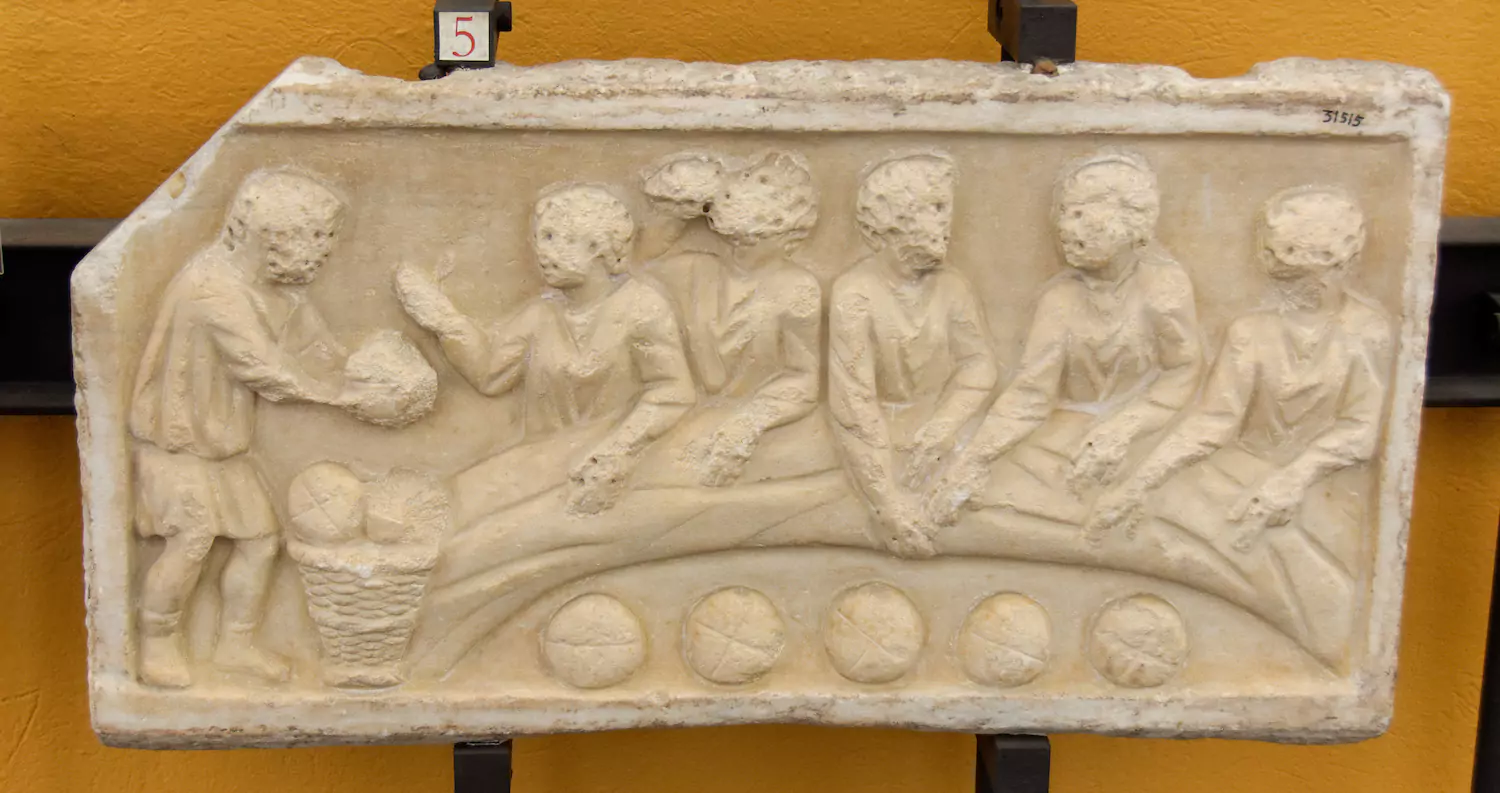2024 Passion Week Devotional, Day 5: Remembering the Lord's Supper
Thursday
The day has come for Jesus and his disciples, especially Peter and John (Luke 22:8), to prepare to celebrate the Jewish Passover (Matt. 26:17–19; Mark 14:12–16). A series of divinely ordained circumstances directs them to a large, furnished upper guest room that will serve as the perfect place to eat the Passover in privacy, on what turns out to be the last night they would spend together before Jesus would be crucified.
When discussing what happens each day during Passover week, we should remember that while we count a day from midnight to midnight today, the Jewish reckoning of days was from sundown to sundown the following day. So, “Thursday,” when they made their Passover preparations, started Wednesday at nightfall and lasted until Thursday nightfall. Then, Jesus and his twelve apostles celebrated Passover on “Friday,” which lasted from Thursday nightfall until Friday nightfall. The same night and the following day (still “Friday”), Jesus would be arrested, tried, and crucified.
Passover and the Lord’s Supper
According to Old Testament regulations (Deut. 16:5–6), Passover must be celebrated within Jerusalem, but because of the conspiracy against Jesus, he is guarded and keeps a low profile.
Even though the Passover technically (in Jewish terms) took place just as “Friday” begins, we will discuss it here since, by modern reckoning, the Passover celebration occurred on Thursday evening. At the height of the meal, Jesus, acting as Passover host, solemnly holds up a piece of bread and affirms it symbolizes his body, which will be broken for the sins of the world (Matt. 26:20–29; Mark 14:17–23; Luke 22:14–30). Similarly, he takes a wine-filled cup and explains that it symbolizes the blood he would shed for the forgiveness of the sins of many. Thus, Jesus establishes a new covenant with a believing Jewish remnant, the twelve apostles (though, tragically, one of them, Judas Iscariot, turns out to be a traitor).
The establishment of a new covenant is a momentous event in salvation history. The prophet Jeremiah, prophesying at a low point in Israel’s history during the Babylonian exile, predicted that in the coming days, God would make a new covenant with his people, unlike the old, Mosaic covenant, which people broke. God would put his law within believers and write it on their hearts. So he would be their God, and they, his people (Jer. 31:31–33). Jeremiah’s prophecy was about to become a reality. Soon, Jesus would be crucified, rise after three days, and later ascend, and then God would pour out His Spirit on all of God’s people.
John also tells us that at the outset of the meal, Jesus washed his disciples’ feet as a startling expression of humility and a lesson in servanthood (John 13:1–20). Typically, a household slave performed this kind of service, but because Jesus and the disciples used the Upper Room without any host or servants present, Jesus stepped into the role of a menial household slave. Paul may have had the foot washing in mind when he wrote about Jesus humbling himself “by taking the form of a servant” (Phil. 2:7).
Pastoral Implications
As we remember the Lord’s death on our behalf and celebrate the Lord’s Supper, let’s teach the people in our congregation about the new covenant and its many benefits. Let’s explain to them why the cross was a necessary part of God’s plan of salvation and how it builds on the pattern of the Passover lamb that was sacrificed on the eve of Israel’s exodus. In essence, Jesus led a new, spiritual exodus by which God delivers those who put their trust in Christ, their Savior, from their bondage to sin and death and gives them new, eternal life in his Son. Help your people understand the linkage between Passover and the Lord’s Supper, and between the old and the new covenants, so they can appreciate both the continuity between those two events and covenants as well as the dramatic improvement the new covenant offers: abiding forgiveness and life in God’s presence through the atoning, once-for-all sacrifice of his Son.
©2024 Andreas Köstenberger. Used with permission.
Related
Passion Week Devo: Palm Sunday
Passion Week Devo, Day 2: The Cursing of the Fig Tree and the Cleansing of the Temple
Passion Week Devo, Day 3: All You Can Do is Share the Gospel
Passion Week Devo, Day 4: Open People’s Eyes to Spiritual Warfare
Passion Week Devo, Day 6: What Jesus Accomplished on the Cross
About The Author

Andreas Köstenberger
Andreas Köstenberger is host at Oak Tree Cottage, a hospitality and coaching ministry for pastors, missionaries, and Christian leaders. He is also cofounder of Biblical Foundations and theologian in residence at Fellowship Raleigh.








